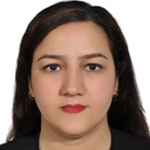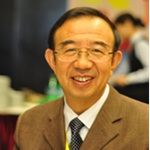Annual Forums Presents
Neuroscience Meet 2026
Global Summit on Neuroscience, Neurology, and Brain Disorders
Theme: “A New Era Shaping the Future of Neuroscience and Psychiatry”
Dates: March 16, 2026 (In Person at Bangkok)
March 17, 2026 ( Virtual Via Zoom Platform )
Venue: Ambassador Hotel Bangkok, Thailand

Dates are open for Abstract Submission and Registrations
All applicants are advised to follow the deadlines.
"Meet the Global Leaders at Neuroscience Meet 2026"
Join our conference during March 16, 2026 (In Person) & March 17, 2026 ( Virtual Via Zoom Platform )
Keynote Presentations
Oral Presentations
Poster Presentations
Academia & Business
Abstract Deadlines
15 February, 2026
Email US at
Registration Earlybird
16 February, 2026
Neuroscience Meet 2026 Oral Speakers
Join with our global experts at Neuroscience Meet 2026 | March 16, 2026 (In Person) & March 17, 2026 ( Virtual Via Zoom Platform )

Felice Elefant
Drexel University, USA

Zi Xin Yang
Camillian St. Mary’s Hospital Luodong, Asia

Juliana A. Knociková
University of Ostrava, Czech Republic

Mohtaram Rabbani
Hong Kong University, Hong Kong

Elena Even-Simkin
Sami Shamoon College of Engineering, Israel

Nika Gracia I. Legaspi, MD
West Visayas State University Medical Center, Philippines

Kedar N Prasad, PhD
Engage Global Inc. USA

James Z. Liu, MD, PhD
First Institute of All Medicines, USA

Zhenhuan LIU
University of Chinese Medicine, China

Jason Zhensheng Qu, MD
Massachusetts General Hospital, USA

Giuseppe A. Iannoccari
University of Milan State, Italy

Lev Iakovlev
Skolkovo Institute of Science and Technology, Russia
Neuroscience Session Highlights
Tracks 01 to 10
Neurodevelopmental Disorders (Autism, ADHD)
Neuropsychiatric and Behavioral Disorders
Brain Tumors and Neuro-oncology
Cognitive Neuroscience & Memory Disorders
Neuropsychology & Behavioral Neurology
Mental Health, Depression & Anxiety Disorders
Sleep Disorders & Chronobiology
Stress, PTSD & Neuroendocrine Disorders
Neurotechnology & Brain-Computer Interfaces (BCI)
Artificial Intelligence in Neurology & Diagnostics
Tracks 11 to 19
Neuroimaging Advances: MRI, PET, fMRI
Neuromodulation & Neurostimulation (TMS, DBS)
Tele-Neurology & Digital Brain Health
Wearables, Sensors & Remote Monitoring in CNS Care
Neurorehabilitation & Physiotherapy
Neuropsychological Rehabilitation
Pain Management & Palliative Neurology
Neuroscience Nursing & Patient Care
Lifestyle Neurology & Preventive Care
Tracks 20 to 28
Stem Cells & Regenerative Neuroscience
Gene Therapy & Precision Neurology
Neurotoxicology & Environmental Effects
Pediatric Neurology & Neonatal Brain Disorders
Aging Brain & Cognitive Decline
Global Burden & Public Health in Neurology
Clinical Trials & Drug Development in CNS
Ethics & Policy in Healthcare
Clinical Innovation & Translational Research
How to Utilize Neuroscience Meet Conference for Career Growth?
- Leverage these Neuroscience conference topics to shape your career path. Identify topics that intrigue you and delve deeper into them. Use the knowledge gained to boost your academic performance, influence your research direction, or define your specialty.
- Furthermore, conferences provide opportunities to interact with professionals who can guide your career. Consider these events as platforms for networking and showcasing your passion and dedication to nursing.
- Participating actively at these gatherings can significantly enhance your visibility and contribute to your professional development.
Explore Neuroscience Meet 2026
Welcome to the International Conference on Neuroscience Meet 2026, a groundbreaking hybrid event poised to unfold in the vibrant landscape of bangkok. At Neuroscience Meet 2026, we bring together the global community of thought leaders, researchers, and professionals dedicated to advancing the frontiers of Neuroscience under the theme of “A New Era Shaping the Future of Neuroscience and Psychiatry”.The Neuroscience Meet 2026 Assembly is not just a conference; it’s a convergence of minds, ideas, and innovations. Our in-person model seamlessly integrates the best of in-person interactions and accessibility, ensuring that participants from every corner of the globe can contribute to and benefit from this intellectual exchange. Together, let’s embark on a journey that blends academic excellence with cultural richness, all while advancing the frontiers of cognitive health.
Upcoming Conferences: Neurology Conferences 2026 | Neurology World Conference | Neurology Conferences | Neurology Conference | Neurology Conference 2026 | Neurology Congress
“Maximizing Your Conference Experience“
Active Participation
Panels and discussions
Networking opportunities
Don’t just be a passive observer. Engage in discussions, ask questions, and share your own experiences and insights.
Conferences offer a golden opportunity to build your professional network. Connect with peers, mentors, and potential collaborators.
“Emerging Trends in Neuroscience Conference“
Digitalization:
With the rise of telehealth and electronic health records, conferences are increasingly focusing on the role of technology in Neuroscience, from digital tools for patient care to the use of data analytics in research.
Interdisciplinary Collaboration:
Recognizing that healthcare is a team effort, modern Neuroscience conferences often feature sessions that promote collaboration with professionals from other disciplines, such as pharmacists, social workers, and even tech specialists.
Focus on Well-being:
Burnout and mental health issues are prevalent in the Neuroscience profession. Contemporary conferences are dedicating sessions to address these challenges, offering strategies for resilience, self-care, and mental well-being.
The Evolving Landscape of Neuroscience Conferences
Neuroscience conferences have long been a cornerstone of professional development, offering a unique platform for practitioners, researchers, and students to come together, share insights, and forge collaborations.Technological advancements and changing patient demographics, the nature and focus of these conferences are also evolving.
Registration Process..!
Keep updated with real time updates. Folow the below steps to get registered
Step 1: Abstract Submission
To begin the process, submit the abstract or research paper here
Step 2: Wait for abstract or research Approval
Wait for abstract or research Approval. This Process usually happens at our end and takes a minimum of one day for acceptance
Step 3: Checkout Venue
Checkout the Venue where you will be presenting. Have a look at the venue page
Step 4: Registration
Register for the Conference to secure your spot and expand your knowledge and network
Pricing
Conference Registration
Speaker Registration
$732
$549
Certification
Conference Kit
Book of Abstracts
Access to All Sessions
Awards
Delegate/Listener
$798
$649
Certification
Conference Kit
Book of Abstracts
Access to All Sessions
Awards
Poster Registration
$865
$599
Certification
Conference Kit
Book of Abstracts
Access to All Sessions
Awards
List of Neuroscience Institutions in Bangkok
- List of Neuroscience societies
- List of Neuroscience Universities
- List of Neuroscience Companies
- List of Neuroscience Hospitals
- List of Neuroscience Associations
- Thai Neuroscience Society (TNS)
– Established in 1985 to advance neuroscience research and education in Thailand - Neurological Society of Thailand (NST)
– The National professional organization for neurologists - Royal College of Neurological Surgeons of Thailand
– National body for neurosurgery, affiliated with the Asian‑Australasian Society of Neurological Surgeons.
- Mahidol University
- Chulalongkorn University
- King Mongkut’s Institute of Technology Ladkrabang (KMITL)
- CMKL University
- Asian Institute of Technology (AIT)https://neuroscienceconference.annualforums.com/
- Chiang Mai University
- Naresuan University
- Khon Kaen University
- Prince of Songkla University
- Kasetsart University
- Thailand Center of Excellence for Life Sciences (TCELS)
- National Center for Genetic Engineering and Biotechnology (BIOTEC)
- Thailand National Nanotechnology Center (NANOTEC)
- BrainSpoke (Prospire Holding)
- pync
- Quantum Technology Foundation (Thailand) – QTFT
- Nx Neuroscience Center, KMUTT
- Araya Research – NeuroAI Business/Neurotech Team
- Neuroprosthetics Companies (Multiple SMEs)
- Hospitals’ In‑House Neuroscience R&D
- Academic Spin-offs at Major Universities
- Neurodiagnostics SMEs (EEG/EMG Tools)
- International Neurotech Partnerships
- Pet-Neurotech Startups (e.g., pync)
- Telehealth Mental‑Neuro Startups (e.g., Ooca)
- Thai Neuroscience Society (TNS)
– Premier national body for neuroscience, organizing annual scientific meetings and educational programs headquartered in Bangkok. - Neurological Society of Thailand (NST)
– Main professional association for neurologists, based in Bangkok. - Thai Stroke Society / Association
– Dedicated to stroke awareness and treatment, affiliated with NST. - Thai Epilepsy Society / Association
– Focuses on epilepsy research, treatment guidelines, and patient education. - Thai Dementia Society / Association
– Advocates research, clinical care, and awareness for dementia and Alzheimer’s in Thailand. - Thai Headache Society / Association
– Specializes in headaches, migraines, and related disorders. - Thai Neuro-Oncology Society / Association
– Focused on brain and spinal cord tumor research and clinical advancement. - Thai Society of Clinical Neurophysiology / Association
– Promotes EEG, EMG, and related neurophysiological diagnostic fields - Thai Society of Neurorehabilitation / Association
– Dedicated to rehabilitation for neurological injury and disease. - Thai Multiple Sclerosis Society / Association
– Promotes research and patient support for MS and demyelinating conditions - Thai Parkinson’s Disease Association
– Supports research and clinical care for Parkinson’s disease
FAQ
Frequently Asked Questions
How do I submit an abstract for the conference?
To submit an abstract for the conference, navigate to the “Abstract Submission” section. Review the guidelines, prepare your abstract according to the specified format, and upload it through the online submission form. Keep an eye on the submission deadline and await notification regarding acceptance or rejection. Good luck with your submission!
What is the deadline for abstract submission?
The deadline for abstract submission is specified on the conference website. It is important to adhere to the given deadline to ensure your abstract is considered for review. Late submissions may not be accepted.
Are there specific formatting guidelines for abstract submission?
Yes, there are usually specific formatting guidelines for abstract submissions. These guidelines may include word limits, preferred font and spacing, and requirements for including tables, figures, or references. Please carefully review the guidelines provided on the abstract submission page to ensure your abstract meets the specified requirements.
Can I make changes to my submitted abstract after submission?
In some cases, limited changes may be allowed to submitted abstracts before the submission deadline. Contact our abstract submission team to inquire about the possibility of making changes and any associated procedures.

